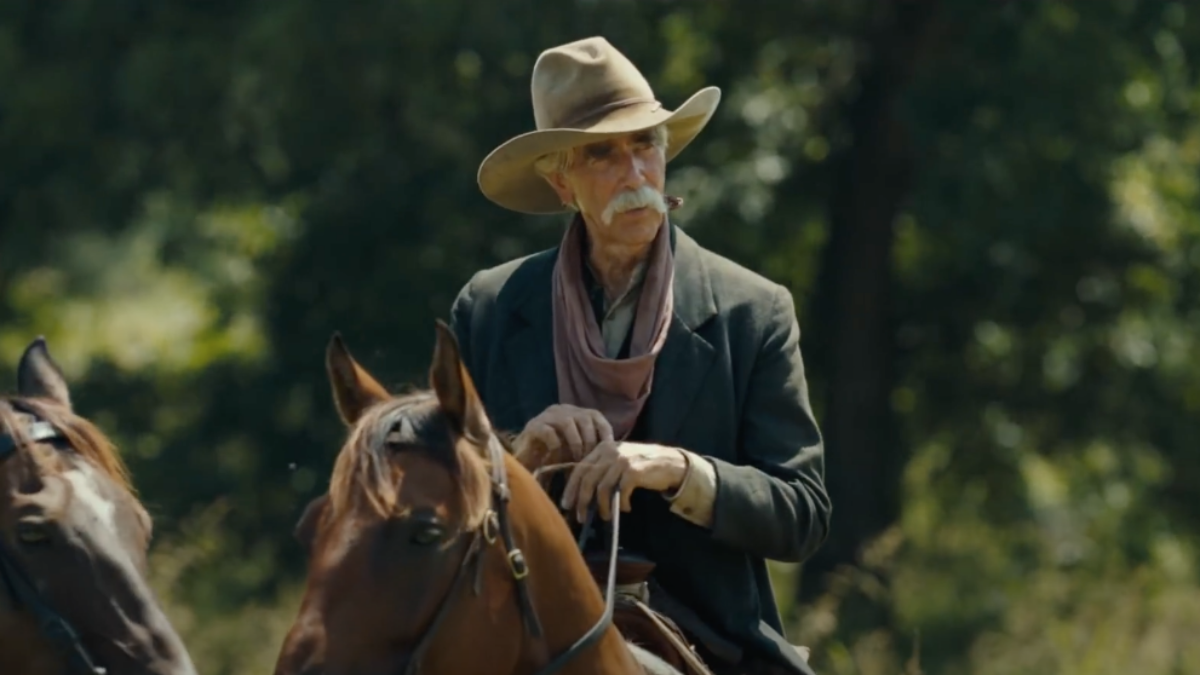A line in the “1883” finale crystallizes the show’s importance. “They’re free people now,” says Noemi. “That’s what they chose.”
Her argument works. The choice in question involves a German immigrant couple, injured badly, but determined to continue their ill-fated journey on the Oregon Trail. “They’re gonna die,” says Shea, the wagon train leader played by Sam Elliott, urging the pair to stay put. “Then they die,” replies Noemi. The prediction turns out to be half right.
“1883” is a compelling and brave depiction of the sacrifices that built this country. It’s not propaganda. It’s not perfect. It’s fair, technically stunning, and very entertaining. Most importantly, the show delivers all of that while also making a deeply relevant underlying point about the American experiment, one most of our institutions won’t touch.
In “1883,” we see vividly the blood, sweat, and tears soaked into the foundation of our country. People might quibble from either side of the aisle over the show’s historical accuracy on race or Native American culture, but the broad contours are right and worth understanding now, as our “decadent society” imbibes Marvel movies and White Claws with all the conveniences of modernity at our fingertips, churned out by the fairest and freest system of government that’s ever existed on this scale.
The America of “1883” is vast, beautiful, and cruel. The freedom it affords is practical and philosophical: unsettled land, economic opportunity, religious liberty. All of those categories were fraught, to be sure, and the show confronts them, from struggles between settlers and indigenous tribes to racial discrimination. It’s a tragic story and one that’s all the richer for being told accurately.
Today it’s easier than ever to forget or deny what America’s revolutionary Constitution offered the world and why people risked everything to experience it. We’ve heard versions of that line many times before, but “1883” brings it to life—and at a time when just about everyone is disillusioned by these cliches, when liberalism is under reconsideration, when the regime trots out revisionist history as a defense mechanism.
Over on “HBO,” a series that could easily be called “1882” is exploring the New York mansions and their denizens that prospered as wagon trains brought desperate immigrants west, as minorities toiled in Brooklyn and newcomers toiled in Manhattan’s palatial kitchens. Several episodes into its run “The Gilded Age” is showing how new money struggled against the old guard, and the disenfranchised struggled against both.
Like “1883,” it’s a standout among the deluge of standouts in this ongoing Golden Era of television. The production is breathtaking and the story is one that’s both fascinating and oft-misunderstood. But we mostly agree on the bad guys. (Although academia gets some of that wrong too.)
In that sense, “1883” is both braver and more timely. Sam Elliott is as good as ever. Outstanding performances from Tim McGraw and Faith Hill, whose characters endured the horrors of our Civil War, add a touching element of familiarity to the series, along with fleeting but seamless appearances from heavyweights like Tom Hanks and Billy Bob Thornton.
Elsa Dutton is occasionally overwritten and over-acted, but her family’s journey does justice to the odds many of our families faced, just as we’re at risk of flattening our ancestors into irredeemable bigots by contemporary standards some of them worked hard to normalize. “1883” is a triumph of American art, a rare positive contribution from Hollywood to our culture, and a promising sign of things to come.
Just as the finale aired, Paramount unveiled plans “to double down on that momentum and not waste it,” referring to the success of “1883” and its predecessor “Yellowstone.” With “1932” in the works, Taylor Sheridan is poised to expand his franchise into a “Yellowstone” universe. (John Jakes did something similar with his hit Kent Family Chronicle novels that debuted around the bicentennial, later adapted for primetime.)
This is more than an obvious business decision. ViacomCBS sees “Yellowstone” as the anchor property of Paramount+, not unlike “House of Cards'” value to Netflix as it built its library of originals. Sheridan is almost single-handedly offering a powerful corrective to the entertainment industry, making good shows that deal in beauty and nuance while proving there’s a huge market for it.
Over the weekend, Mark Levin delivered an interesting broadside against populism and nationalism at the Conservative Political Action Conference. “We move more towards mobocracy—populism—on one side and autocracy—nationalism—on the other side,” said Levin. “Why don’t we brace Americanism and Constitutionalism and individualism, like our framers did?”
While I share his concerns about the fringes of both movements and their influence on the right, I don’t think mobocracy and autocracy define today’s strain of populism—at least not outside D.C. where average Americans just want to feed their families and live out their faiths. The people dipping their toes in the water of local activism, maybe with school board work, phone calls to teachers, or small-dollar donations, believe in Americanism. Many of them are recent immigrants or victims of discrimination who believe the answers to today’s problems are found in our history, not just our history of oppression but in our history of overcoming
The reason they’re succeeding is the same reason Sheridan is succeeding. Who could imagine watching actors recreate the horrors of the Oregon Trail on camera, captured in high definition, broadcast with the swipe of a finger into living rooms around the world? It may have been unthinkable in 1883, but it’s a freedom and a luxury we must learn to use wisely.









